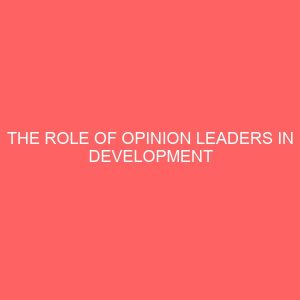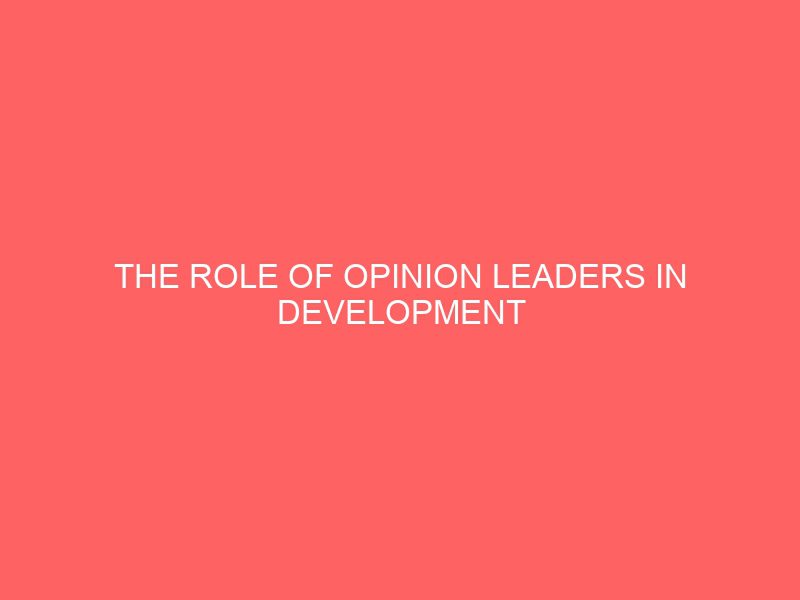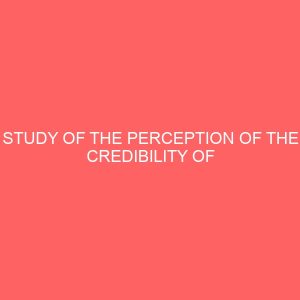Description
Abstract
The role of opinion leaders in development communication (case study of Ugwuaji and Akpuoga rural communities in Enugu state). The aim of this research was to ascertain the effectiveness of opinion leadership in bringing about development communication in rural areas. That is to say, the effort was geared towards finding out how opinion leaders contributed to facilitating the achievement of development communication objectives of the rural people. The researcher became interested in this area of study because of the perceived impact of opinion leaders on the rural populace who make up about 80 percent of Nigeria’s population. Other findings are that opinion leaders hide some development communication messages and information from the rural people that opinion leaders are not the only credible source of information in terms of development etc. Based on the foregoing, therefore, they made recommendations relating to both policy and research. For policy, it is recommended, among others, that government should formulate and pursue policies that encourage the effective use of opinion leaders for rural development. For research, it is recommended, among others, that further research could focus on the relevance of opinion leadership to the urbanities, especially in this area of heavy reliance by urban audiences on foreign media for information.








Reviews
There are no reviews yet.